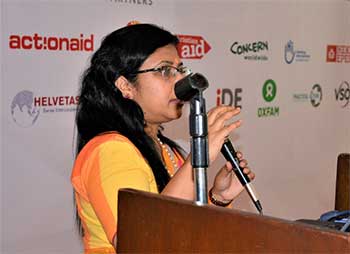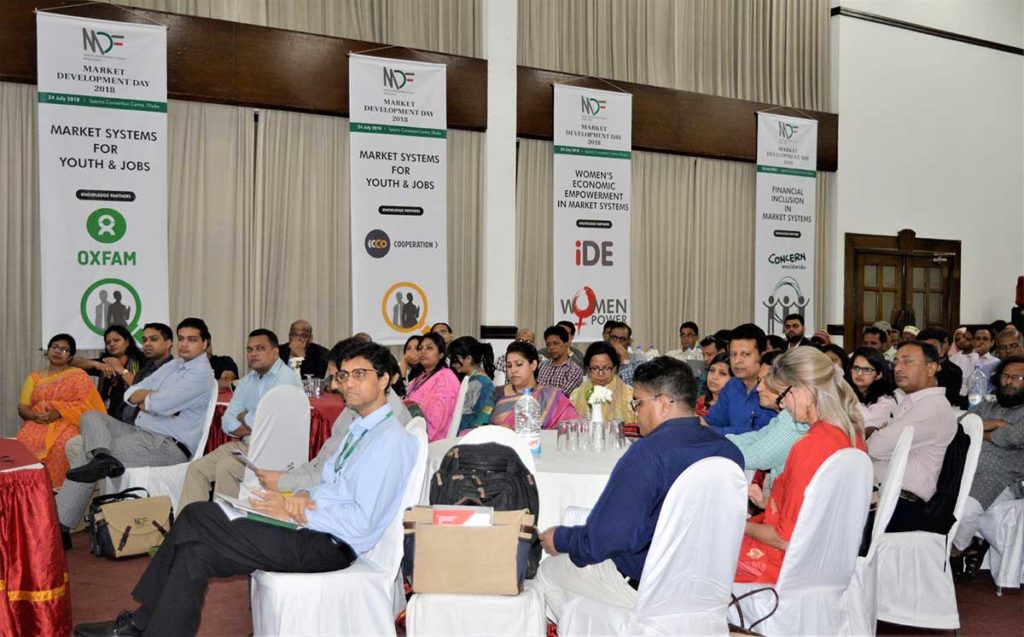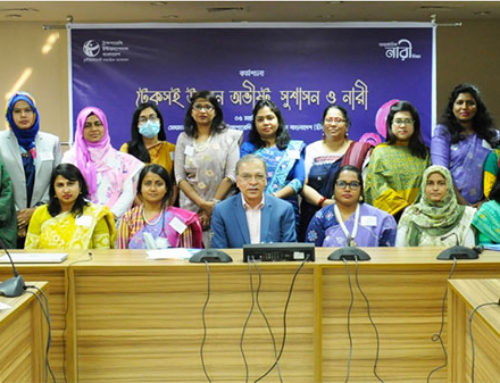HEKS/EPER is one of the Executive Members (EC) of Market Development Forum (MDF) Bangladesh which is a knowledge management and alliance building platform of market development practitioners working in Bangladesh. The platform aims to promote quality knowledge and networking by creating an inclusive platform for different organizations like international and local NGOs, development projects and consultancies to work together by sharing knowledge and experiences.
 Ms. Nurun Nahar, Manager-Market Development of HEKS/EPER, gave a presentation on “Financial Inclusion of Plain land Adibashi and Dalit” on behalf of HEKS/EPER at the event. The presentation focused on credit facilities that exist and those can be customized to make the identified marginalized peoples economic activities successful. The attendees comprised of development partners and private sector specialists as the discussion focused on priority for future funding and opportunities for Dalits and plain land Adibashis were focused. The event was held on 24 July 2018 at Spectra Convention Centre, Dhaka.
Ms. Nurun Nahar, Manager-Market Development of HEKS/EPER, gave a presentation on “Financial Inclusion of Plain land Adibashi and Dalit” on behalf of HEKS/EPER at the event. The presentation focused on credit facilities that exist and those can be customized to make the identified marginalized peoples economic activities successful. The attendees comprised of development partners and private sector specialists as the discussion focused on priority for future funding and opportunities for Dalits and plain land Adibashis were focused. The event was held on 24 July 2018 at Spectra Convention Centre, Dhaka.
MDF comprises of more than 25 international development agencies. The forum started its operation in 2005 with an aim to create greater collaboration and coordination among organizations and projects applying different market development approaches in order to make those approaches more effective, synchronized, and sustainable. It has evolved into a paid membership based network which is run by a secretariat and overseen by an Executive Committee consisting of Christian Aid, iDE, HEKS/EPER, Muslim Aid, Oxfam, Practical Action, VSO Bangladesh. Practical Action is the new Chair of MDF.
Each year MDF organizes an annual event called “Market Development Day”. Various stakeholders are invited to interact, network and find opportunities for collaboration regarding various issues on and around the pro-poor market development. Focusing on markets constraints for key excluded groups, the theme of this year Market Development Days was “Unblocking Barriers to Market”. People affected by humanitarian crises, women, people with disability, unemployed youth, the delivery of social services with market systems and financial inclusion were considered to be the key excluded groups.





